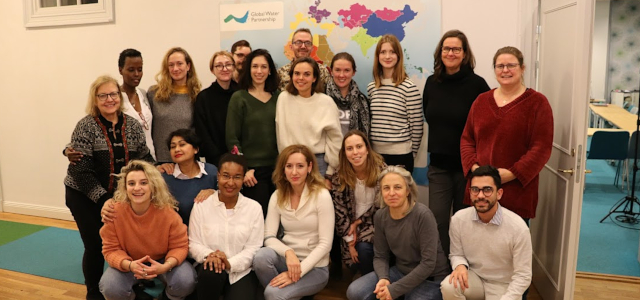Sida convened the first day at their premises, which featured among others a presentation by Augusta Quiney, Amnesty International’s Arts and Strategic Partnership Director, discussing Amnesty International's Ambassador of Conscience Award 2019 which was awarded to Greta Thunberg and Fridays for Future.
The second day of the seminar was convened at GWP’s premises, featuring a lecture by Dr Maria Touri, Lecturer in Communication Studies in the School of Media, Communication and Sociology, University of Leicester, UK. The title of the lecture was Development and Communication in Alternative Food Networks: Empowerment through stories, and the experience of farmers in Kerala, India.
The lecture discussed issues such as: How well do we know the people who grow our food? In the case of Fairtrade, we often have the chance to ‘meet’ the farmers through vignettes and narrations of their lives and the difference that Fairtrade has made to their quality of life. But while such images and stories might motivate us to shop more, how do they affect the farmers? How does this form of representation in a global network like Fairtrade matter for the farmers’ development and well-being?
GWP also had a chance to sit down with Maria Touri for a more in-depth discussion where she explained more about the concept of ‘digital storytelling’ and how important this process can be for the well-being of the people telling the stories:
“Digital storytelling is a non-professional process, where the participant, the farmer in this case, takes control of the creation of their own images of his or her representation, using digital technology, in this case it could be a mobile phone camera. It’s a non-professional project, so the outcome is not as perfect or stylized as a professional video maker would make it, but the important aspect is that what comes out of this process is the voice of the person who operates the mobile phone camera and it is the story this person wants to tell.“
She also talks about the challenges of digital storytelling in development: “How do we continue an activity that started as a project and might be benefitting the community, what happens when the researcher or development organisation that is working with the community withdraws? How do we support this community to continue using digital storytelling techniques, especially if they are benefitting their development in different ways?”
GWP would like to thank Malmö University and Sida for two interesting days with a lot of learning and appetite to do more of this in the future.

